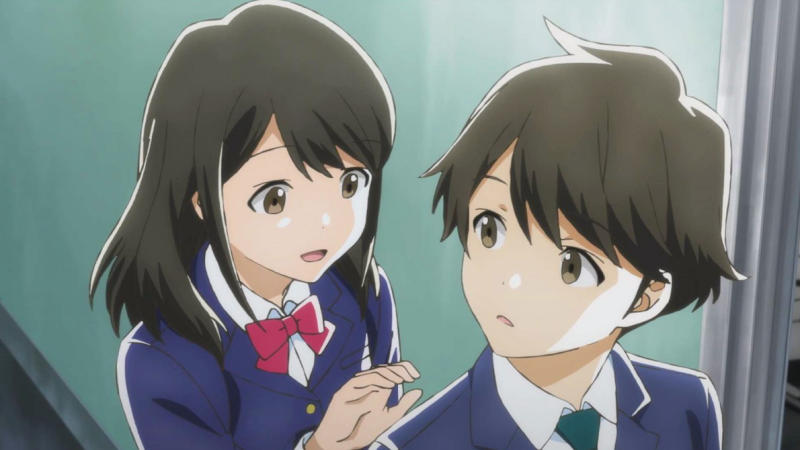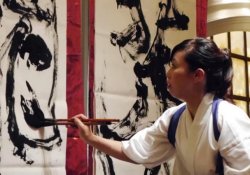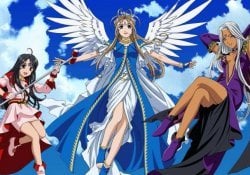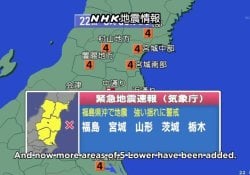In this article, we are going to leave a Glossary of Japanese Words that are mentioned throughout the articles on this site and in Japanese culture. It can be Japanese language words related to objects, culture, tradition, religion and others.
They are very random words, their translations are very direct, they may not make any sense, but it can satisfy your curiosity, if you want to know the quick meaning of each word or if you have fallen out of Google's parachute.

List of Japanese words - Glossary
- -Cho - suffix used for area in a city;
- -Chome - suffix used for area in a city smaller than -cho;
- -Fu - urban prefecture;
- I - suffix meaning "castle" as in Osakajo [Osaka Castle];
- -juku – suffix meaning post town on one of Japan's ancient roads such as Tokaido and Nakasendo;
- -Ku – suffix meaning administrative district or ward as in Kita-ku
- -Sama - polite suffix;
- -San -polite suffix, meaning Mr. or Mrs;
- -Shi - suffix meaning "town", so Kyoto-shi is the city of Kyoto;
- Buratorigama - The "oil-removing paper", first used by geisha and kabuki actors, has now spread in women's skin care;
- Aburidashi - ninja technique of writing in invisible ink;
- Aikido - Martial arts;
- Aimai - vacant;
- Ainu - indigenous peoples of northern Japan and Hokkaido;
- Akari - Japanese paper lamps and lanterns;
- Akiba - short for "Akihabara", Tokyo's famous electronics, gaming and nerd culture district;
- Akiya – abandoned houses that are increasing, especially in the countryside, as Japan's population ages and young people move to cities;
- Ama-zake - sweet love;
- Amakudari – lit. 'descending from the sky', the practice of former civil service bureaucrats holding executive positions in the companies they had overseen in government;
- ANA - All Nippon Airways
- Anime - an abbreviated form of the English word 'animation' referring to Japanese cartoons;
- Arigata meiwaku - when someone asks you a favor;
- Part-time job – part-time work from the German word for work Arbeit;
- Asagao - morning glory flowers;
- atari - "staged accident" or other such incident where a scammer feigns injury for financial gain;
- Ateji - "named characters" the kanji used phonetically to represent words with little or no regard to the underlying meaning of the characters;
- Awamori - Okinawa strong alcohol;
- Baka - epithet for "stupid";
- Bakufu - lit. 'tent administration', the name given to the shogunal government of Tokugawa in the Edo period;
- Bakumatsu – the end of the Bakufu government about 1853-1868;
- Bakuto – an illegal gang of underworld players see Yakuza;
- Bantu - archaic term for administrative "fixer" between top management and staff;
- Banzai - lit traditional joy. "10,000 years";
- Batto-kannon – statue of Kannon in a horse's head to protect horses;
- Benten - popular goddess;
- Aesthetics - sense of beauty;
- Biru Bochi - cemeteries on the roof;
- Biwa - traditional four-string lute;
- Bonenkai - lit. "forget party of the year" year-end party in the workplace usually involving lots of drinking;
- Bonkei & Bonseki – miniature three-dimensional scenery created on a tray using gravel, sand and moss;
- Bonsai - the art of creating miniature potted plants;
- Boryokudan - lit. 'violence syndicate' see Yakuza;
- Boso-zoku - motorcycle gang;
- Bugyo - Magistrate appointed by Tokugawa;
- Buke – is an architectural style associated with the samurai warrior class, characteristically simple and practical;
- Bushi - warrior class;
- Bushido - the way of the warrior, samurai spirit;
- Butsudan - Buddhist altar kept in houses;
- C-mail – the short message service provided by the mobile operator au;
- Chanoyu - the artistic and aesthetic discipline of the tea ceremony;
- Chikuwa - a tubular roll of boiled or grilled fish paste. Literally 'bamboo ring' from the method traditionally used to shape it;
- Chin-suru - microwave something
- Silence - silence;
- Chochin – colorful paper lanterns found in temples, shops and outdoor fairgrounds;
- Choju-giga - Forerunner of the Heian era of modern manga;
- Chonmage - top knot used in the past by samurai and now by sumo wrestlers;
- Chozuya - water source in Shinto shrines for ritual purification of hands and mouth;
- CV - Character voice. - CV - voice of the character;
- Daikoku - one of Japan's seven lucky gods.
- Daikon - giant white oriental radish;
- Daimyo - provincial feudal lords in the Edo period.
- Danchi - public housing blocks;
- Dango – Mochi balls served on bamboo skewers or slang for fraudulent offer;
- Dojin - refers to a group with shared interests;
- Dojinshi – are works, often anime, manga, hentai, etc., published by dojin groups;
- Dojo - practice room;
- Dokyosei - classmates;
- Dokyun - , term for urban levy similar to "chavs" in the UK;
- Donab - ceramic vases with lids;
- Doro - road;
- Doryo - colleagues;
- Ebisu - one of Japan's seven lucky gods.
- Edoko - lit. 'Edo child' a person born in central Tokyo;
- Emma – an emu is a wooden plaque or plaque with a written wish or prayer hanging in Shinto shrines;
- Engawa – a smooth strip of wood like a small porch around a traditional Japanese house;
- Engimono - lucky charms;
- Enjo kosai – compensated dating'; a euphemistic term for student prostitution with older men;
- Enka - folk songs;
- Enryo - restriction;
- Entaigo - Bunkers from the Second World War;
- Ero-kawaii - erotic kawaii, a mix of sexy and cute;
- Fude - calligraphy brush;
- Fufu - husband and wife;
- Fugu – a puffer fish; poisonous fish eaten as a delicacy in Japan;
- Fuhai - corruption;
- Fujisan – Mount Fuji, the highest peak in Japan, at 3776 meters;
- Fukushin - trusted friends;
- loincloth - thong;
- Ferret- - "freer" part-time worker drifting between jobs;
- Furigana - hiragana script to help with pronunciation of kanji characters;
- Furin - wind chime;
- Bath - bath;
- Fusuma – sliding paper doors found in traditional dwellings and temples; sliding paper and wooden screen;
- Futoko – the growing phenomenon of students refusing to go to school;
- Futon - traditional mattress lying on the floor to sleep;
- Futsugo - ordinary speech;
- Gagaku - ancient court music;
- Gaisensha – sound trucks, equipped with public address systems, used for advertising or by the right to broadcast their propaganda;
- Gals - urban fashion tribe;
- Gaman - resistance;
- Ganguro – fashion tribe that favors a tanned look;
- Garakei – a compound word of Galapagos Syndrome and keitaidenwa and referring to old cell phones;
- Gei-no-jin - TV "talent" or star;
- Gengo – name of the time such as Taisho, Showa, Heisei, Reiwa etc;
- Genkan – the genkan is the entrance area of a Japanese house where people take off their shoes;
- Geta - wooden sandals;
- girl - duties or social obligations, hence giri-ninjo duty and humanity;
- Go - board game with black and white counters;
- Gokaido - the five major highways of the Edo period;
- Gokudo - gangsterism;
- Gomagi – piece of wood on which Shinto prayers are written;
- Carro verde – Green Car is equivalent to First Class on European trains or Business Class on airlines on Japanese trains;
- Gundam – legendary animated Japanese sci-fi phenomenon;
- Hachimaki - headband;
- Hagoita - associated battledore
- Haiku – Japanese poem consisting of three lines arranged in a syllable count of 5-7-5;
- Hakimono – footwear: tabi, sandals, flip-flops, geta, setta, zori;
- Hakko Ichiu - "the eight corners of the world under one roof" military slogan from the early Showa period;
- Han - name for feudal territories in the Edo period;
- Hanami - visualization of flowers;
- Hanko - personal seal / stamp;
- Hanten - a padded cotton jacket;
- Hanto - Peninsula;
- Haori - short kimono coat;
- Haragei - "belly art" or mutual understanding;
- Haramaki - are traditional Japanese cotton belly warmers;
- chopsticks - chopsticks;
- chopsticks - bridge;
- Hihokan - a Japanese sex museum;
- Hikari - express train shinkansen;
- Hikikomori – a term for young people who become reclusive and refuse to leave their homes to interact with society at large;
- Hoji - Buddhist memorial service;
- Hori-kotatsu – sunken place in a tatami room covered with a kotatsu table;
- hosutsu - "hostess", a woman who entertains men in a club for that purpose;
- Hosuto - "host", a man who entertains women in a club for that purpose;
- hotel - god of happiness, derived from China;
- Hotto - "hot", which means "hot coffee", a kissaten staple;
- i-mode – Wireless Internet developed by NTT for their cell phones and based on a compact version of HTML, not WAP compatible;
- Ichirizuka - mounds of earth that indicate the distance of 1 ri
- Ijime - moral harassment;
- Ikebana - the art of arranging cut flowers;
- Ikigai - the concept of "a reason for being" or the search for self-realization;
- Ikki - drink a drink in one;
- Ikuji - Child education;
- Inemuri - "sleep while present" napping in public places such as on trains,
- Irezumi - tattoo;
- Irori - fireplace or traditional fireplace;
- Ishidatami - that paves the roads of the Edo period;
- J-League – the Japanese professional football/soccer league formed in 1993, now composed of 2 divisions: J1 and J2;
- J-pop – Japanese pop music often featuring young idol singers, boy bands and girl bands such as Morning Musume;
- JAF - Japan Automobile Federation;
- JAL - Japan Airlines;
- japan - lower case means lacquer or urushi
- Jidai geki - samurai dramas on TV;
- Jika-tabi - rubber boots with toe caps;
- Jimmu - mythical first emperor of Japan;
- Jinja - shrine;
- Bicycle - bicycle;
- Jizai Kagi - fireplace hook;
- Jizo - Bodhisattva and protector of travelers;
- TOGETHER - National Tourism Organization of Japan
- High school girl - high school girls;
- Joshi-buka – boss-subordinate relationship in Japanese companies;
- Joyato – Edo-era stone lantern lit after dark to guide travelers;
- JR - Railways of Japan;
- JTB - Japan travel agency;
- Juku - prep school;
- Kagura – kagura is a type of traditional music and dance that approaches the pantomime associated with the myths and founding gods and goddesses of Japan;
- Kaisha - company, company;
- Kaishaku – a second who delivered the coup de grace to a samurai committing seppuku;
- Kaisoku - fast train;
- Kaitenzushi – Japanese sushi restaurants, where the sushi rotates on a small conveyor belt;
- Kami - 'Gods' or Shinto spirits who may reside in animals, rocks, trees and other natural phenomena;
- Kampo - Chinese herbal medicine;
- Kanzashi – ornate Japanese hair clips used in traditional Japanese hairstyles, usually depicting flowers or animals;
- Kappa - mythical evil sprite, resembling a frog;
- Karakuri – automated and mechanized dolls, automatons;
- Karoshi - death from overwork;
- Kashiwade – ringing the bell and clapping three times to awaken the gods in a Shinto shrine;
- Kashu - singer;
- Katorisenko - incense coils repelling mosquitoes;
- Kayokyoku - popular songs;
- Keigo - honorific language;
- Keiretsu - conglomerate, cartel;
- Keitai – the Japanese term for mobile phones or cell phones;
- Kempeitai – The Japanese military police was founded in the Meiji period;
- Ken - means "prefecture" used as a suffix in 43 of Japan's 47 prefectures.
- Kendama - Japanese game of "cup and ball";
- Kendo - martial art using a sword;
- Ki - vital force;
- Kiku - chrysanthemum the imperial flower;
- Kimo-kawaii – gross-cute typified by the Shadow Bear character;
- Kimono - traditional Japanese dress worn by men and women;
- Kisha - reporters' clubs;
- Kissaten – a small, Japanese-style neighborhood café now being overtaken by coffee chains;
- Kiyome no shio – salt stacked in a cone to purify an inlet;
- Koan - Zen riddle or fable;
- Kodo – the cultivation of mental composure by burning incense;
- Children - child;
- Kogal - Fashionistas based in Shibuya;
- Kokki - National flag;
- Kombu – seaweed or sea tangle used as a basic ingredient for stock.
- cone - short for "connection", i.e. being in favor of an insider;
- Koshu-Kaido - historic road from Shimo-suwa to Edo;
- Kostatsuba - Notice board from the Edo period;
- Kotatsu – kotatsu are low heated tables covered with a futon;
- Kote-e – plaster relief art, colored reliefs found most commonly in warehouses, though also found in homes and temples;
- Koto - Musical instrument with 13 strings;
- Kudokushi - the so-called "lonely deaths" people dying alone;
- Kunaicho - Imperial Domestic Agency;
- Kura - warehouse with thick walls;
- Kusari-doi - rain chains on traditional Japanese buildings;
- Kuyakusho - nursery;
- Kyogen – short and traditional pieces associated with Noh;
- Kyoiku mama - "mother of education."
- Kyoshitsu – a private room, usually in a restaurant or izakaya, which must be reserved for a group;
- Kyudo – Japanese archery. A martial art that emphasizes the balance between action and tranquility;
- Kyuko - common express train;
- Kyusu – Japanese ceramic teapots with a handle at 90 degrees to the side.
- LDP – Liberal Democratic Party, Japan's dominant political party for much of the post-war period;
- Casa de shows - live music venue;
- Lost Decade - the so-called period of economic stagnation in the 1990s, after the bursting of the "Bubble Economy";
- Love hotel – an hourly paid short-stay hotel for couples;
- Machiya - traditional housing;
- Majime - serious;
- Mama-san - owner of bar or women's club;
- Mamba - aka yamamba sub-tribe of ganguro;
- Mamushi - poisonous snake;
- Fuku: Lucky Ise: Shimabara Seto: Seto Shimabara: Shimabara – ceramic waving cats thought to bring good luck.
- Manga – Japanese comic books, as popular with adults as they are with children.
- Manji - swastika symbol;
- Manzai – A form of Japanese comic book storytelling, performed by a duo, widely associated with Osaka;
- Matcha - powdered green tea;
- Matsukazari – pine and bamboo branches wrapped in rice straw as a New Year's decoration;
- Meido kissa - maid coffee;
- Namiki – trees are planted to provide shade on the old road system;
- Naruto – popular manga and anime created by Kishimoto Masashi. Also a port city in northeast Shikoku famous for its hot tubs;
- Natsubate - summer heat exhaustion;
- cat - a background, in gay language;
- Nemawashi - prior consultation in the business world;
- Nengajo - New Year's card;
- Netsuke - fastener carved in wood or ivory;
- NHK - Japan's state-owned TV and radio station;
- Nihonjinron - Japanese "uniqueness" theory developed in the 1960s;
- Nikko-kaido - historic road from Edo to Nikko;
- Ningyo - doll;
- Noh – a masked and highly stylized form of classical Japanese theatre, developed in the 14th century and later refined to its current minimalism.
- Noren – a short curtain often hung on store doors, indicating that the store is open for business;
- NTT Nippon Telegraph and Telephone Corporation;
- Nyushi - vestibular exam;
- O-chugen – gifts given in July for favors or services rendered;
- O-josan - lit. young "princess" of conservative taste;
- O-miyage - memory;
- o-sebo – gifts given in December for favors or services rendered;
- O-shibori – hot towels provided in cafes and restaurants;
- O-tsumami - snacks served in bars;
- Obi - an embroidered sash for a kimono;
- Ohaguro – the custom of Japanese women to blacken their teeth in the Edo period;
- Oibara – practice of seppuku after the death of its lord;
- Ojigi - curving;
- OL - short for 'Office Lady', a worker;
- Omakase - "it's up to you" or "leave it to you", often used in restaurants for the chef's or waiter's recommendations;
- Omikuji - fortune telling by guessing;
- Omizuko or mizuko - aborted, stillborn or aborted children;
- Omotenashi – Japanese hospitality. The welcoming relationship between host and guest with politeness, but without servility;
- omni - demon or demon;
- Onigiri – a sticky rice ball wrapped in seaweed that usually contains a stuffing of fish or pickled plums: umeboshi;
- Onnagata - man playing the role of a woman in kabuki;
- Oshu-kaido – road from the north in Edo times to Shirakawa in present-day Fukushima Prefecture;
- Otaku – geeky hobby obsessed with manga, anime, games or other subcultures;
- Owan - soup plate with lid;
- Ozen - standing tray;
- Ozoni - soup with mochi eaten on New Year's;
- Paris Syndrome – The term for culture shock experienced by Japanese expats when encountering reality differs from prejudice;
- Pasu - a "pass", as in a bus or train pass;
- Pocchiri – the buckle on the obi belt of a maiko often decorated with precious stones;
- Puchipura - low affordable price;
- Q-chan – the nickname of popular marathon runner and 2000 Sydney Olympic marathon champion, Naoko Takahashi;
- Rakugo – traditional narration, often comic;
- Remocon - Japanese abbreviation for "remote control";
- return - "retro";
- Risutor - "restructuring" usually means resizing companies with financial problems;
- Robatayaki - izakaya in rustic style;
- Untranslatable – wandering and masterless samurai; now used as a term for students retaking university entrance exams;
- Rotemburo - outdoor bath;
- Ryoshusho – a receipt for an account: for example, for a taxi, hotel or restaurant;
- Ryotei – upscale Japanese restaurant with private dining rooms;
- Sado - tea ceremony;
- Saikeirai - 90 degree bow as a sign of final respect;
- Sakoku – seclusion policy adopted during the Edo period, which limited foreign trade and sexual relations;
- Sakura - cherry blossom;
- Salaryman – the Japanese term for a male office worker;
- Samue – casual Japanese clothing consisting of a matching jacket and baggy pants;
- Samurai - The hereditary class of feudal warriors in Japan, abolished in 1876 as part of the modernization campaign of Japan. The word derives from saburau, which means "to serve";
- San-pee - i.e. "three P", a Japanese gay term for a homosexual threesome, the "P" refers to "penis";
- SDF - Self-defense forces. Japan's de facto armed forces;
- Seichi junrei – pilgrimage to a sacred site, now often seen in Japanese manga;
- Seku-hara - sexual harassment;
- Without father – elder and, therefore, superior at school or at work;
- Senryu - humerous haiku poem;
- Sensei - teacher, master;
- Sensu - a folding fan, often intricately carved and decorated. sensu 'folding fan'
- Seppuku - or 'harakiri' ritual suicide performed by disembowelment with a sword. A form of penance undertaken by samurai warriors;
- Seza - kneeling position;
- Shachihoko – mythical shachi creature with tiger head and carp body used to protect Japanese castles;
- Shaku – smooth wooden scepter-like symbol of authority carried by Shinto priests;
- Shakuhachi – a traditional Japanese bamboo flute, with colloquial meaning, especially among gay Japanese, of a blowjob;
- Shamisen - lit. musical instrument "three flavor strings";
- Shibari - rope easement;
- Shibui - austere sense of beauty;
- Shichifukujin - the seven lucky gods of Japan;
- Shiken - exam, so shiken-jigoku is "exam hell";
- Shin-jinrui - lit. media term "new species human" for empty-headed, consumer-oriented youth;
- Shina - insulting and taboo word for China;
- Shinbutsu bunri - nationalist policy of the early Meiji period, separating "imported" Buddhism from "native" Shintoism;
- Shinnenkai - beginning of the year party at the workplace;
- Shinto - native animist religion of Japan;
- Shitagi dorobo – underwear thief who snatches women's panties from washing lines;
- Shitamachi - Tokyo city center;
- Shodo - calligraphy, lit. "manner of writing."
- Shogi - chess game;
- Shogun - military ruler;
- Shogunato – military government associated with the Tokugawa regime from 1603-1867;
- Irori - screens covered with paper;
- Shugendo - syncretic Shinto-Buddhist sect;
- Shuji - calligraphy, lit. "practice of letters";
- Shukubo - accommodations in the temple;
- Smapho - abbreviation of "smart phone";
- Soapland - spas offering sexual services;
- Sonno Joi - "Revere the Emperor; expel the barbarian" Bakumatsu;
- Soroban - abacus;
- Soto - outside, public space;
- seibetsukai - parting with a colleague;
- disappear - ink paintings;
- Sumiyaki - coal burners;
- Suribachi & Surikogi - mortar and pestle;
- Tobacco - i.e. "tobacco", meaning "cigarette";
- Journey - socks with torn toes;
- Tachi - a top, in gay language,
- Taiko - traditional battery;
- Taketombo – traditional flying toy made of bamboo that flies like a helicopter when rotated by the hands;
- Tako - Kite;
- Tanka - traditional form of poetry;
- Tanshinfunin - job transfer without family;
- Tansu - traditional chest of drawers;
- Tanuki – raccoon-like animal often depicted on ceramics;
- Tawashi – sponge for cleaning, such as kamenoko tawashi or hechima tawashi;
- Teiki-ken - train ticket;
- Teineigo - polite language;
- Teishoku – a set meal served in restaurants, usually including rice, pickles and miso soup;
- Tekireiki - the right age for marriage;
- Tengu – long-nosed, red-faced, mischievous demi-god, derived from the Hindu Garuda; often represented in statues and masks;
- Tenugui - bath towel in onsen or sento;
- Terakoya – Primary schools of the Edo period are usually located in Buddhist temples;
- Teshoku - handy candle holder;
- Togyu – Bull sumo is still seen in Okinawa and the Oki Islands, among other places;
- Tokaido - ancient coastal road between Kyoto and Edo;
- Tokkuri - sake balloon;
- Toko kyohi - truancy;
- clipping – Edo period province in Shikoku now known as Kochi.
- Tsuba - sword guard;
- Tsukiai – salaried after work drinking, company;
- Tsukubai - stone water basin found in traditional Japanese gardens;
- Tsumagawa - raincoat for geta;
- Tsuru - long life crane symbol;
- Tsuya - waking up at a funeral;
- Ubasute – the legendary practice of taking the elderly to the top of a mountain or remote place to die;
- Uchi - belonging to one's own house; compare soto;
- Uchikake - white wedding kimono with a white headdress.
- Uchimizu – spraying water outside a home or shopping frequently in the summer to cool the local area;
- Udon - thick Japanese buckwheat noodles;
- Ukiyo-e - lit. 'pictures of the floating world'; traditional Japanese woodcuts dating back to the Edo period;
- Ume - plum;
- Umeboshi – sour pickled plums, eaten with rice;
- Unten-menkyo - driver's license;
- Usu (no translation) – a mortar for mixing rice to make mochi;
- Utah - No chant;
- Wa -harmony also prefix to denote Japanese;
- Wabi Sabi – a basic concept of Japanese aesthetics, emphasizing unpretentiousness, simplicity, earthiness and satisfaction with imperfection;
- Wabori – Japanese-style tattoo and its retainers;
- Waraji - straw fabric sandals;
- Warikan - split the bill;
- Wasabi – green horseradish, often eaten with sushi;
- Washi - Japanese rice paper;
- Washo - chant of encouragement at Shinto festivals;
- Yabai - can be translated as dangerous or risky;
- Yabusame – Japanese mounted archery, knights dressed in medieval costume fire arrows on three fixed targets;
- Yaki-imo – boiled yam often sold by mini-van sellers with a distinctive call;
- Yakitori - grilled chicken on a skewer;
- Yakyu – Japanese baseball often associated with the ideals of team play and intense physical practice;
- Yamato-damashii – Japanese spirit; word with militaristic associations;
- Yamato - historical word for Japan;
- Yatagarasu - three-legged crow and Jimmu's helper;
- Yatai - prevent;
- Yatate - paint well for traditional Japanese brush;
- Yofu - Western style, as opposed to wafu, Japanese style;
- Yokozuna – Grand Champion is the highest rank in sumo wrestling;
- Yosakoi – Yosakoi is a group formation that dances to the rhythm of modern electronic music;
- Yoshokuya - Western-style restaurants;
- Yuino - gifts from the potential husband to the potential bride;
- Yukan - preparation for burial;
- Yukata - thin cotton dress;
- Zabuton - floor cushions, 'za' means 'sitting' and 'buton' being Futon;
- Zaibatsu - conglomerates;
- Zazen - Zen meditation;
- Zen - a branch of Mahayana Buddhism;
- Zenekon - contractors;
- Zentai - full body Cosplay suits;
- zone - rice cake soup;
- Zori – flat-woven straw sandals worn by men and women;
- Zoto - gift donation;





